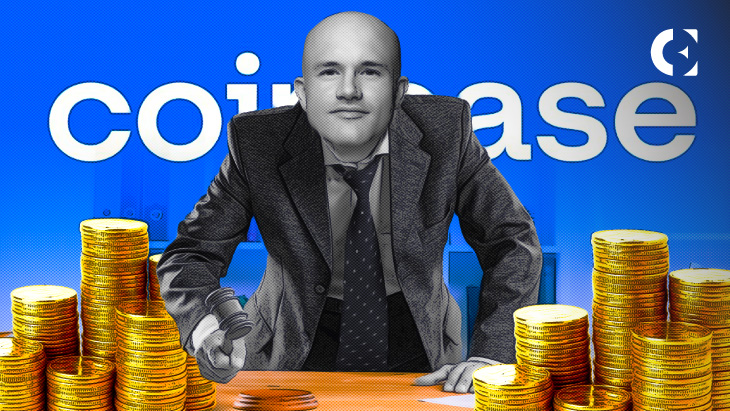- Brian Armstrong tweeted that Coinbase’s staking processes aren’t securities.
- The CEO of Coinbase quotes the blog post created by Paul Grewal.
- In the blog post, Grewal explains the reasons why Coinbase’s staking isn’t considered security.
Brian Armstrong, the American Business Executive, Co-Founder, and CEO of the leading crypto firm Coinbase, reiterated that “Coinbase’s staking services are not securities”, refuting SEC’s claim that staking services constitute securities.
On February 12, Armstrong tweeted that Coinbase would “happily defend” that the company’s staking cannot be considered as securities:
In addition, he mentioned the blog post created by Paul Grewal, the Chief Legal Officer at Coinbase, in which he cited detailed explanations on why Coinbase’s staking services aren’t securities.
Previously, on February 9, the Securities and Exchange Commission (SEC), declared that staking should be considered as security, in connection with the allegations against the crypto company Kraken.
Significantly, the SEC Chair Gary Gensler stressed the claim, stating:
Whether it’s through staking-as-a-service, lending, or other means, crypto intermediaries, when offering investment contracts in exchange for investors’ tokens, need to provide the proper disclosures and safeguards required by our securities laws.
In the blog post, Grewal portrayed the dangers of superimposing the securities law into staking commenting that it would do “serious harm to the development of the crypto industry in the US”.
Significantly, Grewal put forward four main reasons for not considering staking as securities, among which the main is that staking does not “constitute an investment of money”.
It is noteworthy that the second and third reasons he highlighted are the involvement of the decentralized platform and the failure to meet “Howey’s reasonable expectation of profits element”. The Howey Test refers to the U.S. Supreme Court case for determining whether a transaction qualifies as an “investment contract.”
As the final reason, he pointed out that:
Staking services do not pay rewards based on the “efforts of others.” Service providers’ staking services are not entrepreneurial, managerial, or a significant factor in whether customers receive staking rewards or the amount of rewards received.
Furthermore, he stressed that staking is not a security under the US Security Act or the Howey test.
Disclaimer: The information presented in this article is for informational and educational purposes only. The article does not constitute financial advice or advice of any kind. Coin Edition is not responsible for any losses incurred as a result of the utilization of content, products, or services mentioned. Readers are advised to exercise caution before taking any action related to the company.









